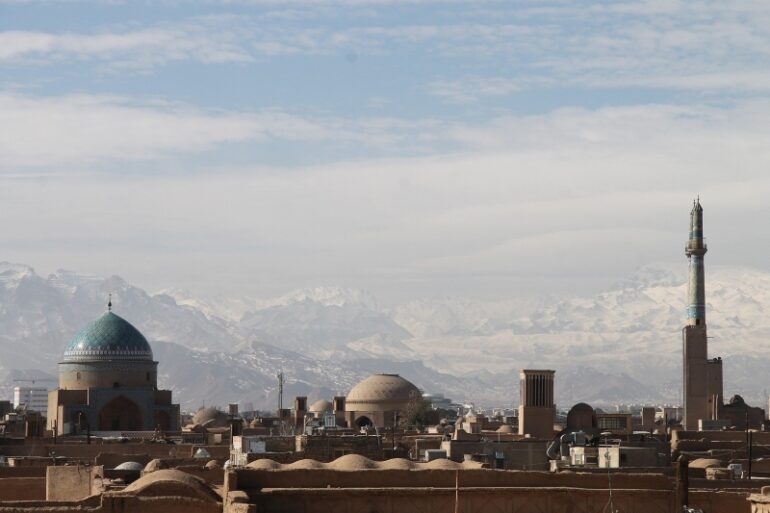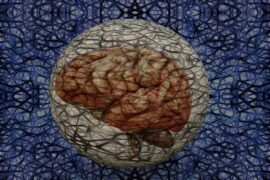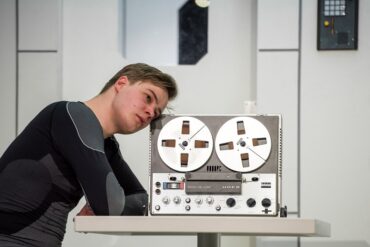The German-Persian drama Morgen sind wir frei is an impressive exploration of love and revolution. It recounts a sensitive historical moment while delicately telling a touching true story throughout.
By Elena Lorenz*
»Kiss me for the last time«, the diegetic music plays bitterly as Omid goes to his room after a lovely family dinner. The catastrophe that is about to fall on him and his family is not meant as a surprise, especially because the story happens in true historical context, yet somehow, the suspense holds to the last minute. The irony that dominates this scene and the entire movie is already captured in its title. The German-Iranian historical drama Morgen sind wir frei(Tomorrow We Are Free), the impressive work of first-time director and screenwriter Hossein Pourseifi, premiered in October 2019. It tells the true story of a young German-Iranian family living in the GDR in 1979 when the Iranian Revolution wins over the Shah regime.
Omid (Reza Brojerdi), a passionate revolutionary communist, longing for his homeland and thrilled by the victory and the promises of freedom, moves to Iran right away. Beate (Katrin Röver), a chemist and his German wife, follows him full of love and hope with their 8-year-old daughter, Sarah. All their hopes soon turn to ashes when the Islamist party takes over and sweeps the country with ruthless oppression. The family has to face painful decisions: to conform to the new regime and be safe or to speak up? To stay together or to part? To flee or to surrender?
Morgen sindwirfrei has boldly taken up exciting challenges of many kinds. How successfully can a movie shot now in Malaga depict the 1979 Tehran in a crucial historical moment that is clouded by heaps of propaganda and threats? As an Iranian, this was the question that drove me to watch it, and I found it a brilliant, engaging integration of an agonizing family story into a political documentary of impeccable accuracy.
Setting the Scene
For a film produced with a most modest budget and outside of Iran by a mostly non-Iranian or expat cast and crew, it is admirable how the film has met the challenge of creating an Iranian atmosphere. There are many elements all over the family’s house in Tehran, for example, that drag the Persian audience all the way back to their childhood houses: the books, the furniture, the dishes, the dinner party, and the character of the grandma herself, her clothes and her manners making her the paradigm of a Persian grandma. The same goes for the school. Even though the setting is restricted to one yard, it accurately creates a 70s Persian school environment with the way the students and teachers are dressed, how the teacher addresses the children and walks around with her big ruler.
Other visual and auditory elements of the kind include how the sound of the Islamic Adhan raising from the mosque is heard in the house and wakes Beate up, how the walls of the city display pictures of Khomeini and Islamic texts, and the way the people and the police are dressed. In fact, by putting together the right props, auditory input, costumes, and some prototypical character demeanor, the film repeatedly stimulates the collective memory of its Persian audience, efficiently bringing them to Tehran in the 70s, while giving its non-Iranian audience a reliable overview of it. All of this is strategically combined with real footage of demonstrations, speeches, and news reports of the time, giving the film resemblance to a documentary.
Telling the Story
Rendering the scene plausible, Morgen sindwirfrei is even more precise in narration. What happened to Iran after the revolution reminds one of the Animal Farm story or the famous saying »the Revolution devours its own children«, and this is represented in the film in all its facets. The film remembers to emphasize how the revolution was comprised of different parties but Khomeini and his followers took over and condemned every other sect as anti-revolutionary traitors. Similar to the recorded speeches of Khomeini integrated in the movie is Oriana Fallaci’s critical interview with him in September 1979, where she asked him about the contributions of other parties to the revolution and he defensively answered, »none of them fought or suffered, they did not contribute anything; they did not help the revolution at all, the people fought for Islam, and Islam means everything«. The movie remarkably portrays the tragic fall of a revolution to so hopeless a point that the protagonists have to either die or run away or surrender. Of course, all the persecutions and executions explained in the movie are historically documented. Indeed, the movie thoroughly shows how the new regime set out from day one to establish its own, fake version of history by means of violent suppression and removal, and simultaneously and to the same extent, education.
The role of education as a powerful tool of cultural change is obvious to politicians, which is why the Islamic regime targeted schools, university, and the press with its first measures. The film does not neglect that: it offers an accurate account of the sudden change of rules in schools, the Islamic education of little children, the closure of universities, and the control over the press. We see that it works — and how fast. Little Sarah is soon excited about Qoran and hijab after her peers laugh at her in class when she says she has no religion at first. Women change their clothing drastically. We see Beate’s colleague Asieh forced and beaten up by her husband whereas she seemed to be a free, cheerful woman before, and we see journalists siding with Khomeini’s conduct more and more – all this happening within one year. This clear-cut before-and-after effect is not an exaggeration on the movie’s part, this is exactly how it happened in reality.
Morgen sind wir frei illustrates how women have been neglected and suppressed since the revolution by taking them as its real heroes: Beate fighting for love, for her daughter, and against compulsion, Asieh putting her life at stake by bravely standing up to the police, Nadja, Omid’s niece, fearlessly fighting for women’s rights, and even the old grandma losing her sons to the revolution. What they all go through also illustrates how women were the first victims of the Islamic Republic, and how alone they have been in their protest as men gradually distanced themselves from them, influenced by the patriarchal religious regime. When Nadja tells Omid that »it (the revolution) was only to change the situation of men, that of women has not changed at all, you men don’t even care what happens to women«, he is so blind to this that he even slaps her in response. Besides, the choice of Zahra Amir Ebrahimi as Nadja does not seem coincidental: the actor, herself, has been a victim of Islamic law and patriarchal culture in Iran. She had to flee from the country after her boyfriend distributed a sex tape of her and she became the target of massive national shaming.
Morgen sind wir frei successfully relates to the most sensitive parts of the cultural and historical memory of the Iranian people, and in only 98 minutes, effectively recounts a national tragedy parallel to a family trauma with characters whose emotional turbulence is depicted tangibly. It is a shame that a movie like this has not received better support or reception.
*This article is published under a pseudonym.






